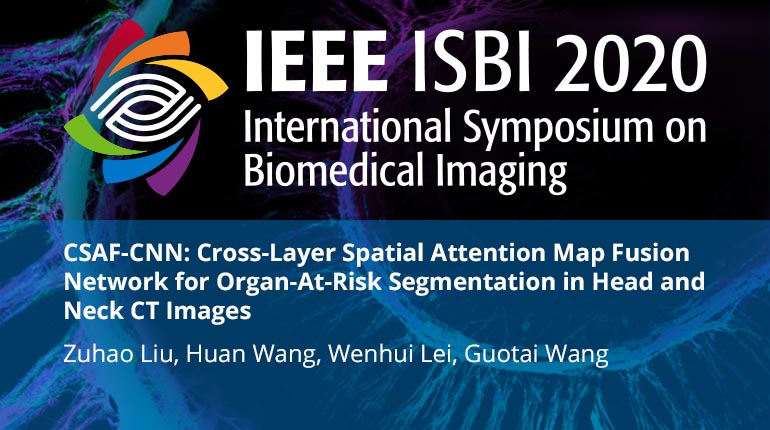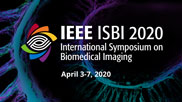Collection:

Accurate segmentation of organ at risk (OARs) in head and neck CT images is critical for planning of radiotherapy of the nasopharynx cancer. In segmentation tasks, fully convolutional networks (FCNs) are widely used. Recently, as a kind of attention module, concurrent squeeze and excitation (scSE) blocks in FCNs are proved to have good performance. However, the attention feature maps generated by scSE blocks are isolated from each other, which doesn?t help network notice the similarities among different feature maps. Consequently, we propose cross-layer spatial attention map fusion network (CSAF-CNN) to fuse different spatial attention maps to solve this problem. In addition, we introduce a top-k exponential logarithmic dice loss (TELD-Loss) in OARs segmentation, which effectively alleviates the serious sample imbalance problem of this task. We evaluate our framework in the head & neck CT scans of nasopharynx cancer patients in StructSeg 2019 challenge. We validate the effectiveness of the proposed method through ablation study, and achieve very competitive results.
- IEEE MemberUS $11.00
- Society MemberUS $0.00
- IEEE Student MemberUS $11.00
- Non-IEEE MemberUS $15.00
Videos in this product
CSAF-CNN: Cross-Layer Spatial Attention Map Fusion Network for Organ-At-Risk Segmentation in Head and Neck CT Images
Accurate segmentation of organ at risk (OARs) in head and neck CT images is critical for planning of radiotherapy of the nasopharynx cancer. In segmentation tasks, fully convolutional networks (FCNs) are widely used. Recently, as a kind of attention module, concurrent squeeze and excitation (scSE) blocks in FCNs are proved to have good performance. However, the attention feature maps generated by scSE blocks are isolated from each other, which doesn?t help network notice the similarities among different feature maps. Consequently, we propose cross-layer spatial attention map fusion network (CSAF-CNN) to fuse different spatial attention maps to solve this problem. In addition, we introduce a top-k exponential logarithmic dice loss (TELD-Loss) in OARs segmentation, which effectively alleviates the serious sample imbalance problem of this task. We evaluate our framework in the head & neck CT scans of nasopharynx cancer patients in StructSeg 2019 challenge. We validate the effectiveness of the proposed method through ablation study, and achieve very competitive results.
 Cart
Cart Create Account
Create Account Sign In
Sign In
